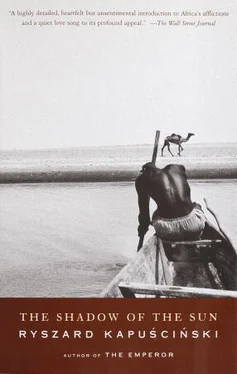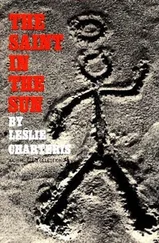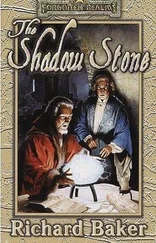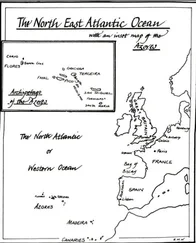Africa, except for the Muslim north, did not know writing, and history here is an oral tradition, legends passed from mouth to mouth, a communal myth created invariably at the base of the mango tree in the evening’s profound darkness, in which only the trembling voices of old men resound, because the women and children are silent, raptly listening. That is why the evening hour is so important: it is the time when the community contemplates what it is and whence it came, becomes conscious of its distinctness and otherness, defines its identity. It is the hour for conversing with the ancestors, who have departed yet are nevertheless present, who lead us on through life, and protect us from evil.
In the evening, the quiet beneath the tree is only seemingly so. In reality, the stillness is brimming with the most varied voices, sounds, and whispers. They come from everywhere — from the high branches, from the surrounding bush, from beneath the ground, from the sky. It is best to be close to others at such moments, to feel one another’s presence, for this brings comfort and courage. The African always feels endangered. Nature on this continent strikes such monstrous and aggressive poses, dons such vengeful and fearsome masks, sets such traps and ambushes, that man lives with a constant sense of anxiety about tomorrow, in unabating uncertainty and dread. Everything here appears in an inflated, unbridled, hysterically exaggerated form. If there is a storm, then the thunderbolts convulse the entire planet, the lightning tears the sky to shreds; if there is a downpour, then a veritable wall of water pours from the heavens, threatening at any moment now to drown us and pound us into the ground; if there is a drought, then it is one that does not leave a drop of water behind, and we die of thirst. There is nothing here to temper the relations between man and nature — no compromises, no in-between stages, no gradations. Only ceaseless struggle, battle, a fight to the finish. From birth until death, the African is on the front line, sparring with his continent’s exceptionally hostile nature, and the mere fact that he is alive and knows how to endure is his greatest triumph.
So it is evening, and we are sitting under the great tree. A girl hands me a glass of tea. I can hear people, whose faces, strong and lustrous, as if carved out of ebony, are barely discernible against the motionless darkness. I understand little of what they are saying, but their voices are serious and engaged. Speaking, they feel responsible for the history of their people. They must preserve it and enhance it. No one can say, “Read our history in books.” For no one has written such books; they do not exist. History does not exist beyond that which they are able to recount here and now. The kind of history known in Europe as scholarly and objective can never arise here, because the African past has no documents or records, and each generation, listening to the version being transmitted to it, changed it and continues to change it, transforms it, modifies and embellishes it. But as a result, history, free of the weight of archives, of the constraints of dates and data, achieves here its purest, crystalline form — that of myth.
In these myths, instead of dates and mechanical measures of time — days, months, years — other designations appear, like “long ago,” “very long ago,” “so long ago that no one remembers.” Within these time frames everything can still be placed and arranged in a temporal hierarchy, only that within it time will not evolve in a linear fashion, but will mimic the circular, uniform revolutions of our planet. In this view of time, the notion of development does not exist; it is replaced by the notion of the abiding. Africa is eternal abiding.
It is getting late and everyone is going home. The night is here, and the night belongs to the spirits. Where, for instance, do the witches gather? Everyone knows that they hold their meetings and councils in high branches, immersed and concealed in foliage. It is better not to disturb them, to move away from beneath the tree — they cannot stand to be spied and eavesdropped upon, and they are quite capable of vengeance, of persecution, spreading disease, inflicting pain, sowing death.
Therefore the place under the mango tree will remain unoccupied until dawn. At dawn, the sun and the shade of the tree will appear simultaneously. The sun will awaken people, who will immediately strive to hide from it, seeking the shelter of the tree. It is strange but true that human life depends on something as fleeting and fragile as shade. That is why the tree, which bestows it, is something greater than just a tree — it is life itself. If lightning strikes its crown and the mango goes up in flames, people here will have nowhere to find shelter from the sun, or to assemble. Without the means to assemble, they will be unable to make any decision, reach any resolution. But above all they will be unable to recount their history, which exists only in the process of being retold during evening gatherings beneath the tree. Because of this they will quickly lose their knowledge about their yesterday, will lose their memory of it. They will become people without history, meaning — they will be nobody. They will lose that which united them, will disperse, each one going off in a separate direction, alone. But solitude is impossible in Africa; a solitary man will not survive a single day, is automatically condemned to death. That is why if a thunderbolt shatters the tree, the people who lived in its shade will also perish. And so it is said: Man cannot survive longer than his shadow.
Besides shade, the second most valuable thing is water.
“Water is everything,” says Ogotommelli, a wise man of the Dogon people, who live in Mali. “The earth comes from the water. Light comes from water. And blood.”
“The desert will teach you one thing,” a nomadic Saharan merchant told me in Niamey. “That there is something that one can desire and love more than a woman. And that is water.”
Shade and water — two fluid, inconstant things, which appear, and then vanish who knows where.
Two kinds of life, two situations: anyone who finds himself for the first time in an American supermarket, one of those gigantic, unending malls, will be struck by the richness and variety of the goods assembled there, by the presence of every conceivable object that man has ever invented and produced, and subsequently transported, stowed, and piled up, all of which results in the customer not having to think about anything — the thinking was done for him earlier, and now he has everything ready and at hand.
The world of the average African is different indeed. It is a lean world, of the very simplest, most elementary sort, reduced to several objects: a single shirt, a single bowl, a handful of grain, a sip of water. Its richness and diversity are expressed not in a material, concrete, palpable, and visible form, but in the symbolic values and meanings that the African imparts to the most mundane things, imperceptible to the uninitiated on account of their utter ordinariness. Thus a rooster’s feather can become a lantern lighting the way in darkness, and a drop of oil a shield that will protect you from bullets. The slightest object takes on symbolic, metaphysical weight, because man decided that it would be thus and through his choice elevated it, transported it into another dimension, into a higher realm of being — into transcendence.
Once, in the Congo, I was admitted to a secret: I was allowed to see a boys’ initiation school. Upon finishing the school, boys became men, had the right to speak up in clan assemblies, could start a family. The European visiting this place, so critically important in the life of an African, will be stunned, will rub his eyes in puzzlement. How is this possible! Why, there is nothing here! No benches, no blackboard! A few thorny bushes, some bunches of dry grass, and instead of a floor, gray, ashy sand. This is supposed to be a school? And yet the young people here were proud and excited. They had attained a great honor. Everything here was based on a social contract, on an act of profound faith, which was treated very seriously: tradition said that this place was the school that initiated boys into adult life, and therefore it had a privileged status, was a distinguished, even sacred site. A nothing becomes a deeply significant something because we decide that it should be so. Our imagination anoints and exalts it.
Читать дальше












